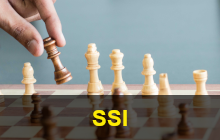
Additional SSI premium risk for the staff employed in free zones
Dr. Hakkı Demirci
Introduction
Free zones may be defined as places considered outside the customs territory despite being within the national borders where some of the legal and administrative regulations for commercial, financial and economic system applicable in the country are not implemented or partially implemented, wider incentives and advantages are provided for the enterprises operating in the country and places that are considered physically separate from other parts of the country. The exemption of wages of the staff employed in free zones from income tax is one of the most important of these advantages. The implementation of this incentive has been clarified by the Law no.6772 which was enacted on 24.02.2017. However, in the circumstance that the incentives provided to employers are reflected to the employees, it is not yet clarified whether or not they will be included in the income taken as basis to SSI premium and it is seen as an important problematical area in the future audits.
In this article, our purpose is to eliminate the hesitations about whether or not it will be subject to SSI premium in the circumstance that the income tax withholding incentive provided to the staff employed in free zones are reflected to the employees and how to make notifications according to payment periods.
Inclusion of refunded amounts into the SSI premium base
The wages paid to the employees of the companies operating in free zones as taxpayers exporting at least 85% of the FOB price are applied minimum living allowance at first and then the income tax calculated over the remaining amount is refunded to them as an incentive. In the circumstance that these refund amounts are transferred to the employees, the concerning payments will become an additional income for the insured by losing their tax qualification. In that case, these additional payments are required to be subject to the income basis to premium by being reflected on the gross wages.
Are SSI deductions from the refunded amount repetitive?
As widely known, the SSI premiums are calculated over the gross wage. For the taxpayers transferring the benefitted income tax withholding to employees, an additional premium cost is generated regardless of the payment on the net or gross wage basis. In the practice of SSI, the amounts refunded to the employees are considered as “a new income” and therefore they are not evaluated as a basis that is applied repetitive premium.
When and how the SSI notifications will be made?
Since the companies operating in free zones, taxpayers exporting at least 85% of the FOB price are eligible to benefit from these incentives; the taxpayers paying that amount to the staff in advance during the year without waiting for the refund are required to submit it to the SSI by including the relevant amount into the monthly premium and service document (APHB) to be drafted for the concerning month and taxpayers preferring the year-end total benefitting should submit it through adding into the APHB of the last month.
Conclusion
Companies operating in free zones that are entitled with a refund of income tax withholding are required to accrue SSI premium over these payments to the employees and submit those amounts to the SSI through the APHB. Retroactive additional premium, late fee and administrative fines will be applicable for the companies that do not act in this way in case of a possible audit. Taxpayers paying the refunded income tax back to the employees may need to revise their wage contracts, payroll calculations and SSI notifications. There is no such obligation or requirement for taxpayers who do not reflect the refund amounts to their employees.
Explanations in this article reflect the writer's personal view on the matter. EY and/or Kuzey YMM ve Bağımsız Denetim A.Ş. disclaim any responsibility in respect of the information and explanations in the article. Please be advised to first receive professional assistance from the related experts before initiating an application regarding a specific matter, since the legislation is changed frequently and is open to different interpretations.







 Go to Top
Go to Top